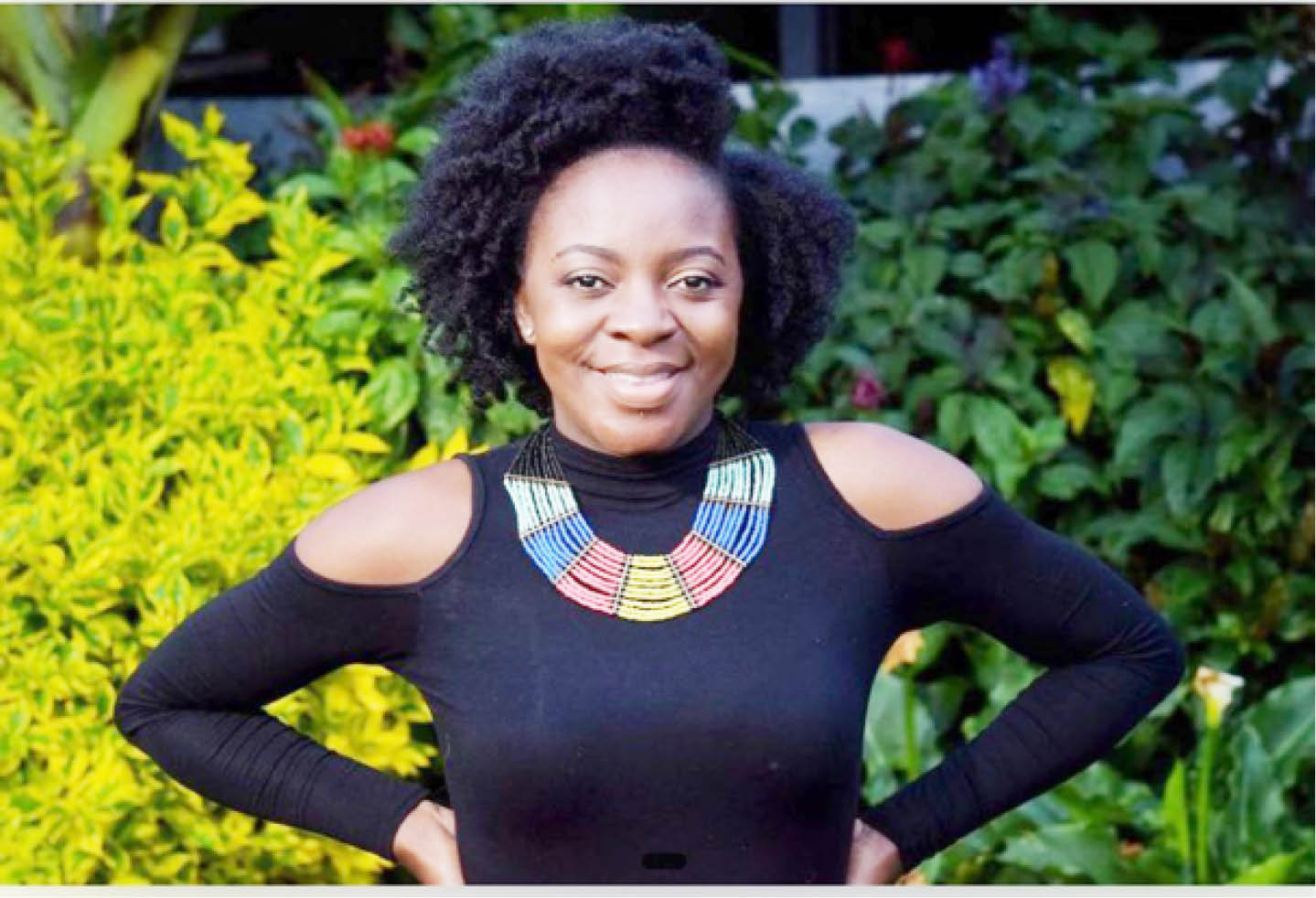How an entrepreneur’s innovative hair formula is helping afro-textured women “Mane”tain their curls – and is making her business highly successful, into the bargain.
Pivoting from blogger to business owner is not a common path to entrepreneurship, but that’s how Lienne Shonhiwa began building her cosmetics empire.
- World Bank counters FG, says 7m Nigerians plunged into poverty
Kidnappers hold district head, release wives after N5m ransom in Niger
Today, Shonhiwa is the founder and CEO at one of Zimbabwe’s most exciting startups – Manetain Organics.
“I was just a regular person who had the same frustrations as any other person, you want to take better care of your hair, you want to do better, you watch YouTube videos,” she said, perched inside the minimalist store that serves as HQ for Manetain Organics.
With its storefront tucked inside an upmarket business complex in Harare, the outlet is replete with natural products formulated for afro-textured hair, including curls, coils and kinks. The products sport earthy tones which, like the interior décor, come across as extremely calming.
Those calm tones belie the frenetic paces at which the enterprise has grown. They also hide the struggle that preceded the rise of Manetain.
“It was years in the making,” said Shonhiwa, hinting at a back-story that stretches back far beyond the relatively short five years of the brand’s existence.
In 2015, Shonhiwa, then a supply chain consultant, decided to take to the internet with solutions for black women embracing their afro-textured hair. What she found was a paucity of information.
“People are talking about all these great products but then you get into the local market and there’s nothing. Back then, it was even worse,” she recounted.
Shonhiwa began offering important cues on how to care for and wear African curls, through her blog Manetain. From hair tutorials, DIY home remedies, and hair care on a budget, Shonhiwa began sharing information with women who had similar concerns. “I got quite a big following just from sharing my own experiences and just sharing tips and stuff, and one of the key questions I used to get from people was where to get products… It was frustrating for my followers; it was also frustrating for me.”
Shonhiwa, became more forceful in her blog, documenting her 16-month transition from relaxed to natural hair, including blending concoctions in her home kitchen. But things took a dramatic twist after she was fired from work and became pregnant with her first child. Blogging took a back seat. The spark, however, reignited when Shonhiwa began experiencing postpartum hair loss.
“That was the thing that got me to start blogging again. I just went into the kitchen, now I’m just desperate, I’m just looking for something to help get my hair back… I’m trying different things, different oils, different formulas, until I came up with that one product that worked really well.”
Elated, Shonhiwa shared her winning formula online and was swiftly joined in efforts by a crowd of enthusiastic fellow online druids. Then her followers, miffed with the laborious process of formulating the product Shonhiwa had perfected, asked if she couldn’t just sell them the solution.
“My followers were like, ‘thanks, but can you just make it and I will just buy it? I wasn’t thinking of it from a business perspective. I wasn’t thinking it’s a gap, it’s an opportunity,” she said.
She obliged anyway and created an initial cosmetic prototype that she shared with friends and family. Already she was starting to see potential and admitted that her thoughts had already taken an “if they like it, and it’s perfect, then I can launch it to the public,” direction.
The reviews were positive. Shonhiwa began sourcing branding and packaging, and at that moment, Manetain Organics was born. Shonhiwa moved from her kitchen to a factory in an industrial park, where, today, the magic happens.
Shonhiwa is now determined to wrestle market share from the major players in the Zimbabwean market, where imports of artificial hair alone average an estimated 8 million US dollars annually, according to business research firm Start-up Biz.
The last few months have been momentous for the organic product start-up, having inked a product distribution deal with 15 outlets of southern Africa’s huge Pick n Pay retail chain. Her innovative products have sparked a minor social media revolution that is reverberating across Zimbabwe, both in hair salons and in homes.
Shonhiwa is not alone. She is just one of a growing network of African women entrepreneurs in the beauty sector, who are overcoming financing hurdles to reach a multi-billion-dollar black consumer market that historically has been underserved by retailers.
Manetain Organics’ growth also comes on the back of a global shift as more women of colour embrace their natural hair and acknowledge the dangers of hair relaxers − including hair thinning and burns to the scalp. It’s a shift that is being felt across Africa.
“It’s a whole movement,” Shonhiwa said. “It’s not normal to put a chemical in your hair that burns you. Back then, it was like if you have your hair out, it’s a sign of poverty, there was a lack of knowledge, lack of information. Now, there’s more information and people are seeing more and more people rocking their natural hair, so it now motivates them to do the same.”
Sports management student Tafadzwa Makamure, who went natural after years of relaxing her hair, echoes Shonhiwa’s sentiments.
“I used to relax my hair as a kid. Growing up, you’d always get relaxed,” she says adding: “Now, there’s so much backlash about relaxed hair and how it’s unhealthy on little kids, and the majority of people are now going for natural hair.”
22-year-old student Maruva Mkanganwi had a conflicted relationship with her natural hair, for years.
“Looking back, I think about how crazy it is that everything I struggled to accept and find beautiful within myself were the very things that I loved most about my mother. My hair being one of them,” she said.
For ophthalmologist and natural hair advocate Dr Solomon Guramatunhu, a lot of hair-related choices for black women have a marked psychological impact and the younger generation need more examples of women embracing their afro-textured hair.
“When I talk about hair, I’m talking about the mindset,” he said. “Each time a black woman is wearing a weave or a wig, we are inflicting untold psychological damage to the black child.”
Shonhiwa and her team continue to work towards reshaping the narrative around natural hair and gaining significant market share in the Zimbabwean hair industry. The business also secured a spot to participate in Eagle Nest, an incubation programme designed to nurture youth-led businesses to be export-ready.
“Participating businesses were selected through an open call. The selection was based on businesses that have ready products and services that can be developed into export offerings,” explained Danai Majaha, Communications Manager for ZimTrade, which is running the programme.
Ultimately, for Shonhiwa, the cherry on top is to see a growing community of women proudly wearing their natural “mane”. “It’s something as simple as when you go out and you see someone, you both are rocking an afro, there’s a silent acknowledgement, a silent appreciation,” she said, with a shake of her own.
Source: bird.africanofilter.org

 Join Daily Trust WhatsApp Community For Quick Access To News and Happenings Around You.
Join Daily Trust WhatsApp Community For Quick Access To News and Happenings Around You.


